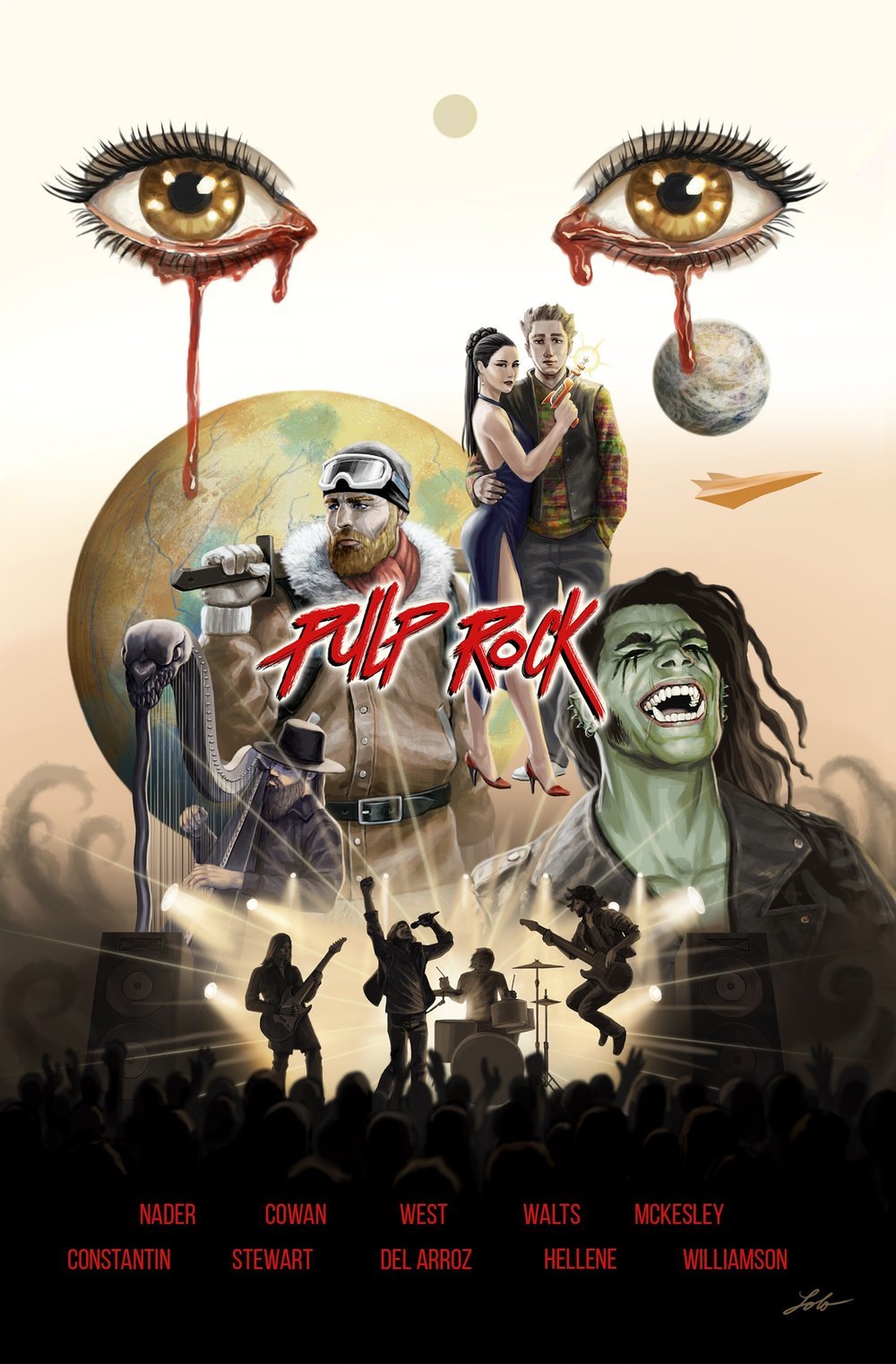Linkfest 2022-12-02: USS Iowa

Kancolle USS IOWA
This is how war veterans find common ground.
Just as automatically as we associate comedy with laughter, we associate tragedy with death. And just as was the case with the relationship between laughter and comedy, a Renaissance tragedy-- though it will always include at least one death--is not actually about death. Or, to put it another way, it is not precisely the death(s) that makes the play tragic. A great deal of ink has been spilled by critics trying to theorize the experience of tragedy; in this introduction I will briefly summarize a few of the most influential of those theories and then discuss at some length the approach I'd like us to focus on in this course.
Letters from Fiddler's Greene: 40 Lessons from Warhammer 40k
It's time to talk about everyone’s favorite science fiction pulp setting: Warhammer 40000.
Since its inception, this extended fictional universe (designed as the backdrop for miniature war-gaming) popularized the image of the "Grim-dark" future. Of course, most of 40k's core ideas are stolen from pulp and early 20th century science fiction. Nonetheless, in the last two decades, Warhammer has made the iconic visage of an impossibly vast, unimaginably violent, millennia-long interstellar war part of the core cultural lexicon of the internet, with memes and quotes galore.
…
For Warhammer 40k, post-hoc satirical explanations never sell, nor can a “ret-con” or "lore update" fix its problematic politics without destroying its flavor. It turns out that Warhammer's reactionary themes are the central reason why people like it. Without that edge, there is no draw nor feeling that something profound is being described. Talking to many people in the meme and hobby spaces, I am convinced the average Warhammer fan understands this. Still, I am surprised that their understanding never goes further.
The list of 40 epigrams presented here is quite good.
I had saved this link ages ago because of the discussion of commercial art, but now I’m interested because of the discussion of how Thor Power Tool Co. v. Commissioner affected the comic book market and how success is measured in comics sales.
Building Worlds: The Empire in “Star Wars: A New Hope” as a Failing State
With fan dissatisfaction with Star Wars reaching new heights, it can be useful to go back and look at how strong the fundamentals of the story really are, and why it got so popular in the first place. I especially like the detailed analysis here of the conference room scene on the first Death Star.
Regress Studies: I Try to Read 20 Master & Commander Novels
Patrick O’Brian’s Master & Commander series really is great, but you can ruin your experience by trying to cram in a huge number of genre novels in a short period of time.

Pulp Rock offers stories that range from adventure to tragedy to absolute weirdness. If you are curious about its origins, the Kickstarter page offers Hellene’s thoughts on the impetus for this volume. As is my usual plan with short story anthologies, I will offer some brief thoughts on each story within the collection, and an overall summary. For my rating scale, I looked back at my review of Timothy Zahn’s Cascade Point and Other Stories. These aren’t Amazon stars for marketing, these are my best judgement of overall skill against a master.
Lloyd Alexander: High Fantasy and Heroic Romance
While its full meaning remains tantalizingly unknown, we can still trace mythology's historical growth into an art form: through epic poetry, the chansons de geste, the Icelandic sagas, the medieval romances and works of prose in the Romance languages. Its family tree includes Beowulf, the Eddas, The Song of Roland, Amadís de Gaule, the Perceval of Chretien de Troyes, and The Faerie Queene.
In modern literature, one form that draws most directly from the fountainhead of mythology, and does it consciously and deliberately, is the heroic romance, which is a form of high fantasy. The world of heroic romance is, as Professor Northrop Frye defines the whole world of literature in The Educated Imagination, "the world of heroes and gods and titans..., a world of powers and passions and moments of ecstasy far greater than anything we meet outside the imagination."
The Long View: The Future of Freedom
In the seven years since I wrote the intro to this book review of John J. Reilly’s I haven’t seen much to change my mind:
The usual gloss on the Whig interpretation of history is that we find ourselves in a more or less inevitable progression towards a final state, usually not an eschaton as such, but rather something more prosaic like constitutional democracy. It isn't hard to find critics of Whig history, so I won't get into that here. What makes this book interesting is the things Zakaria cites as undermining democracy at home and abroad.
We now have twelve years more history to evaluate under Zakaria's model and see what happened.
- Russia still lacks any kind of independent civil society. The Russian Orthodox Church has tended to hew closely to the state. As predicted, a lack of independent sources of power leaves you with no option other than a good czar. Putin is still in charge.
- Attempts to instill democracy in a variety of Arab countries have failed miserably, leading to wars and a refugee crisis. Most of these states were organized on religious lines, ethnic lines, or both. Democracy has enabled clear majorities to oppress minorities, or else civil war has ensued when no one had a clear balance of power. It now seems clear that the lack of democracy in these places was a feature, not a bug. On a side note, the popularity of groups like the Muslim Brotherhood is no doubt enhanced because they *are* civil society in countries like Egypt. The Brotherhood provides many services to the people.
- America and Europe are roiled by populist movements. These gain followers precisely because of the perception that the elites that rule Western Civilization seem uninterested in anything other than their own aggrandizement.
Zakaria wanted to highlight these democratic deficiencies in order to save liberal democracy from itself. So far, it looks like this has not been effective. In fact, my suspicion is that his proffered remedies, for example more elite unaccountable agencies run by experts like the Federal Reserve, will hasten rather than retard progress towards a universal state. As such, I'm surprised by the cool tone of John's review, but maybe he was focusing on what Zakaria wanted, rather than what he is getting.
Comments ()